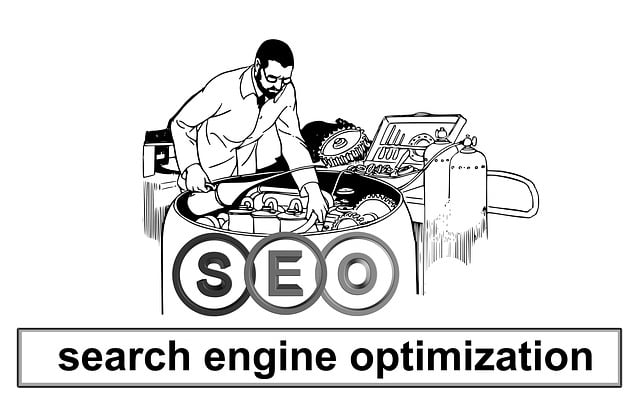URL optimization is a powerful on-page SEO strategy that boosts search engine rankings and user engagement. To enhance accessibility and comprehension, create short, descriptive URLs with relevant keywords, using hyphens to separate words. Favor static URLs over dynamic ones, ensure case-insensitivity, and maintain consistency across your site. Incorporating targeted keywords in URLs provides context to users and search engines, improving rankings and driving organic traffic. Implement 301/302 redirects for smooth navigation and URL canonicalization to prevent duplicate content issues. Ultimately, optimized URLs enhance crawlability, user experience, and search engine visibility, contributing to effective on-page SEO.
In the realm of digital marketing, URL optimization is a powerful tool for enhancing your on-page SEO strategy. This article delves into the intricacies of URL optimization, exploring its pivotal role in improving search engine rankings and user experience. We’ll uncover key factors to consider when crafting SEO-friendly URLs, including structure, keyword usage, and best practices for redirects. By implementing these techniques, you can significantly boost your website’s visibility and performance in today’s competitive digital landscape.
Understanding URL Optimization and Its Role in On-Page SEO

URL optimization is a critical aspect of on-page SEO, playing a pivotal role in how search engines understand and rank web pages. It involves refining URLs to make them more user-friendly and search engine optimized. A well-optimized URL includes relevant keywords, provides clear indications of page content, and follows a structured format. This not only aids users in quickly grasping the page’s purpose but also helps search engine crawlers efficiently index web pages.
By implementing best practices for URL optimization, such as keeping URLs short and descriptive, using hyphens to separate words, and ensuring they are static rather than dynamic, websites can significantly improve their on-page SEO efforts. These strategies ensure that each page’s address is not only accessible but also carries meaningful information, contributing to better search engine visibility and user engagement.
Key Factors for Creating SEO-Friendly URLs

When crafting URLs for on-page SEO, several key factors come into play. First and foremost, it’s crucial to keep the URL structure simple, descriptive, and human-readable. This means using relevant keywords that accurately represent the page content while keeping it concise. For example, instead of a generic URL like `www.example.com/page123`, opt for something more informative such as `www.example.com/seo-friendly-tips`.
Additionally, URLs should be static and avoid dynamic parameters whenever possible. Dynamic URLs, often containing query strings, can make it harder for search engines to understand the page’s content. If you must use dynamic elements, consider using hyphens or underscores to separate them, making the URL more SEO-friendly. Also, ensure that your URLs are case-insensitive, as search engines treat lowercase and uppercase characters identically.
Techniques to Enhance URL Structure for Better Indexing

To optimize your URL structure for better indexing, start by keeping it short and descriptive. On-Page SEO experts suggest URLs that include relevant keywords and convey the page’s content succinctly. Instead of dense, confusing strings of characters, aim for clarity—a well-structured URL improves both user experience and search engine comprehension. Think of it as a roadmap for both visitors and crawlers; the more straightforward it is, the easier it becomes to navigate your site.
Additionally, use hyphens to separate words in URLs, ensuring each word represents a semantic concept. This technique not only enhances readability but also helps search engines understand the context of your pages. Consistent formatting across all URLs on your site creates a cohesive structure that signals to search algorithms the organization and hierarchy of your content—a significant factor in effective On-Page SEO.
Utilizing Keywords Effectively in URLs for Search Engine Visibility

When crafting URLs for on-page SEO, incorporating relevant keywords is a powerful strategy to enhance search engine visibility. Each URL should ideally be unique and descriptive, serving as a micro-level signal to both users and search algorithms about the content that follows. By including targeted keywords, you provide context, making it easier for search engines to understand the purpose of your page. For instance, instead of a generic URL like `www.example.com/page`, consider using `www.example.com/seo-best-practices`.
This keyword-rich URL not only tells users what they can expect but also signals to search engines that the page is relevant to SEO topics. Such optimization ensures your web pages rank higher for specific queries, driving more organic traffic. It’s a direct way to connect user intent with your website’s content, forming a strong foundation for effective on-page SEO strategies.
Best Practices for Redirects and URL Canonicalization

When implementing redirects, ensure they are 301 redirects for permanent changes. Temporary redirects should use 302 status codes to avoid passing on link equity. Use URL canonicalization to designate the main version of a webpage, telling search engines which variant to index and follow. This practice reduces duplicate content issues and ensures that all links pointing to different versions of a page contribute to the SEO of the primary URL.
On-Page SEO best practices include keeping redirects as simple as possible, using descriptive URLs, and avoiding unnecessary parameters or fragments in the redirected URL. Regularly review and update redirects as your site’s structure evolves, ensuring they remain relevant and effective. Proper redirect implementation contributes to a seamless user experience while enhancing your site’s visibility and performance in search engine rankings.
Measuring the Impact of URL Optimization on Your SEO Strategy

URL optimization is a powerful tool within your on-page SEO strategy, allowing you to enhance both user experience and search engine visibility. By carefully crafting URLs, you provide clear signals to both search engines and visitors about the content they can expect to find. This simple yet effective technique has a significant impact on your overall SEO efforts.
When you optimize your URL structure, you ensure that each page is easily identifiable and accessible. Search engines use these URLs as a primary index for understanding your website’s content hierarchy. A well-structured URL improves crawlability, enabling search engine bots to navigate your site efficiently. This, in turn, leads to better indexing, higher rankings, and increased organic traffic. Additionally, optimized URLs contribute to reduced bounce rates, as users can quickly grasp the relevance of a page, fostering a more positive user experience.
